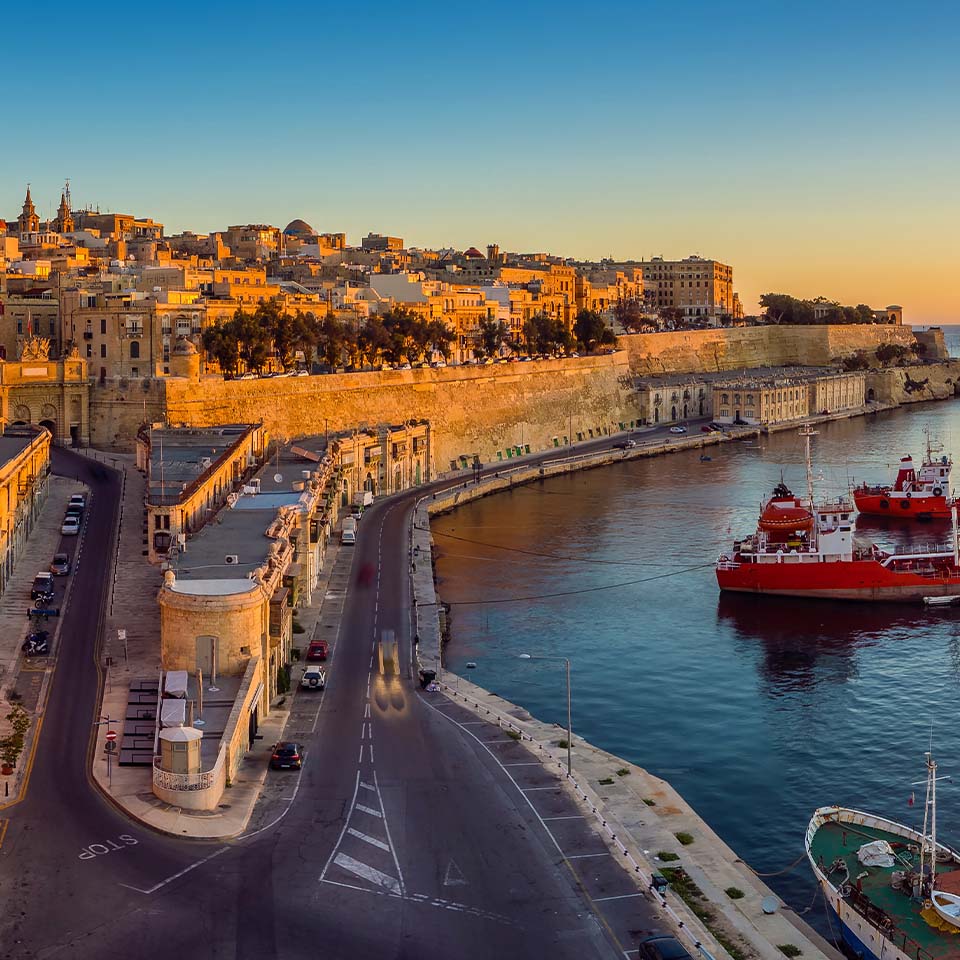Under the Maltese Res, Non-Dom taxation regime, foreign income and capital gains are exempt from Maltese income tax. Resident individuals who are not domiciled in Malta are taxed only on any income or gains arising in Malta and only the portion of the foreign income that is remitted to Malta.
Malta has been regarded an attractive relocation destination for many years. The Maltese Islands are renowned for their Mediterranean climate, beautiful landscape, rich culture and historical landmarks. Malta has been a member of the EU since 2004 and a member of the Schengen Area since 2007. Therefore, relocating to Malta also provides easy, visa-free access to numerous European destinations.
Malta is also a great place for doing business. During the last couple of decades it has enjoyed political stability and a long period of uninterrupted economic growth. Moreover, Malta offers a transparent administrative and legal framework, low incorporation and maintenance costs for companies and a highly efficient, EU-approved tax regime.
Malta Res Non Dom: Country Highlights
TAX SYSTEM: EU Approved
EU: Member of the EU & Eurozone
DOUBLE TAX TREATIES: Broad network of over 70 signed DTTs
SCHENGEN STATUS: Full Member
TOTAL AREA: 442,6 km2
SPECIFIC TAX RATES: For beneficiaries of Special Tax Status (The Residence Programme, Global Residence Programme, Malta Retirement Programme, Highly Qualified Persons Rules)
REMITTANCE AND SOURCE BASIS OF TAXATION: For resident, non-domiciled individuals
Benefits of Malta Res Non Dom Taxation
Some of the benefits of the Res, Non-Dom taxation in Malta follow.
- EU Jurisdiction.
- Relief from double taxation.
- Remittance basis of taxation for Resident Non-Dom individuals
- Foreign source capital gains remitted, free of tax
Benefits
Legal Basis of Malta Res Non Dom Taxation
The general rules regarding taxation of individuals in Malta are laid down in the Income Tax Act (the “ITA”). Malta also has a broad network of over 70 double taxation treaties.
In terms of the provisions of the ITA, the connecting factors that give rise to taxation of an individual in Malta are: residence and domicile. Individuals who are neither resident nor domiciled in Malta are taxed only on a source basis.
Malta Res Non Dom Eligibility
Eligible individuals are those who are not domiciled in Malta and who establish tax residency by either spending 183 days in Malta during the tax year or demonstrating an intention to reside in Malta. Holding a Maltese residency card does not automatically confer Res, Non-Dom status, but it is considered a prerequisite for establishing such status.
Such Res, Non-Dom individuals are taxable in Malta only on:
- local source income
- local source chargeable capital gains and
- foreign source income only if it is remitted to Malta.
An individual who is resident but not domiciled in Malta will therefore not be subject to tax in Malta on any foreign source capital gains (even if these are remitted to Malta).
Individuals who are neither tax resident nor domiciled in Malta are only subject to tax in Malta on income or capital gains arising in Malta.
Who is this for
Why Malta
Key Contacts
Magdalena Velkovska
Dr. Jean-Philippe Chetcuti
Requirements
Effective date and evidencing Res, Non-Dom status in Malta
Tax residency in Malta is effective from the date of arrival, and it can be evidenced by obtaining a Tax Residence Certificate from the Maltese Commissioner for Tax and Customs. The Res, Non-Dom status does not have an expiry period or a time cap, allowing eligible individuals to benefit from it as long as they continue to meet the tax residency criteria.
Process/Timeline
How We Can Help You
Our tax lawyers and advisors provide expert guidance on residency and pre-immigration planning, tax residency, and the tax implications of relocating to Malta. We also assist clients establish and evidencing their residency status in Malta, both for domestic and for international tax purposes.




















